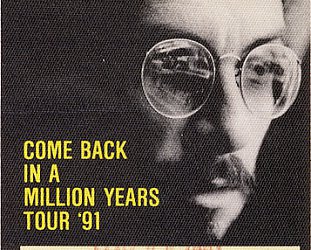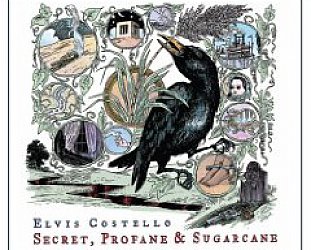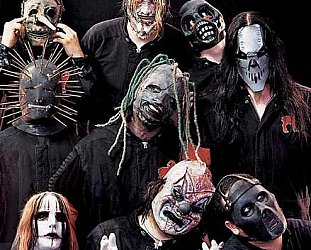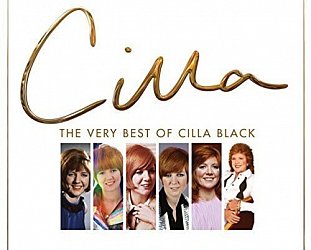Graham Reid | | 4 min read

When Mick Jagger started doing interviews this year for his return-to-form Wandering Spirit, he let it be known he’d prefer to speak with younger writers, not those carrying a whole heap of Stones baggage.
Elvis Costello – now 16 years in the trade and whose latest album The Juliet Letters finds him with a string quartet – makes the same point.
Ironically Melody Maker and NME are fine, he says. They change their writers all the time. It’s the guys his own age “still ploughing their own bitter little furrows” and stuck in the 70s or 80s who are the problem.
These critics/writers/interviewers have so many preconceptions about him, string quartets and so on they want to hammer it around pathetically. He was their man and they won’t let him forget it.
Well, forget it.
And it is ironic that Costello’s long-time followers should be those most cynical about this latest offering with the much-acclaimed Brodsky Quartet, a fashionable young English group whose recordings of Shostakovich earned them Record of the Year in Review magazine.
The irony is that all Costello ever promised was to expect the unexpected.
The album before this was an all-instrumental soundtrack to the British television programme GBH. Before that he presented an album which included collaborations with Paul McCartney, the funky New Orleans group Dirty Dozen Brass Band and avant-guitarist Marc Ribot, one of Tom Waits’ offsiders.
Costello has recently written pop for Wendy James, has his own album of country, rock ‘n’ roll and R&B standards in the can called Kojak Variety, is about to score a musical drama and looks back to a country album (Almost Blue) and Stax soul record (Get Happy!) in his extensive recording career.
Expect the unexpected, so why not a string quartet?
Rock isn’t closed to him, he insists, and talks briefly about his forthcoming Idiophone rock album. But bands like Guns N’ Roses hold no thrall because they are a pantomime. He knows the ending because he’s does all that himself.
“That particular cocktail didn’t interest me when Led Zeppelin did it and it doesn’t interest me now...which isn’t to say that somebody else can’t think it’s the greatest thing ever. It doesn’t appeal to me, but then again it’s not supposed to. I’m 38 and not ashamed of that. But I can also see through most of that stuff.”
What Costello is quick to point out in The Juliet Letters cover notes and during this rapidly conducted, good humoured, idea-packed half-hour conversation, is this new album isn’t his attempt at “classical” music, nor is it classical people having a go at “rock.” That has been done and mostly have been spectacular failures.
Getting listeners – and more specifically those thirtysomething journalists and critics – past those preconceptions of what the album “might be, to find out what it is” is the problem. When that happens, there is a lot to hear.
Working with a string quartet – which obliged him, rather late in his career, to learn to read and write music – certainly opened doors for him. In some songs his voice is very much the fifth instrument, and he and the quartet members who wrote democratically (although he had an “editorial role”) found they could write lyrics across bar lines free of the constraints of a back beat.
The Juliet Letters has its genesis is a story Costello’s wife Cait O’Riordan found in a newspaper about a Veronese professor who took it upon himself to reply to letters addressed to Juliet Capulet.
The idea of people writing to an imaginary woman from Shakespeare’s Romeo and Juliet – and a dead imaginary one at that – fascinated him and when he linked up with the Brodskys they batted around the concept of letters as the basis of a series of songs.
The letters could take any form – begging letters, suicide notes, missives from a war zone to home, one lover to another...
As each meeting became a songwriting workshop with all members contributing lyrics and musical ideas, the strengths of the rare collaboration became apparent.
As he reflects he sees a song such as Taking My Life In Your Hands could easily have a drum backbeat added. Jackson Monk and Rowe would work equally well as an R&B tune; First to Leave could be rearranged as an Ellington-type arrangement for a Sarah Vaughan.
Yet other pieces could exist in no other form than they do already.
Inside even one song such as First To leave, which concludes with a long instrumental passage, there are the various crafts of pop songwriter and classical composer.
“The quartet would write for their idiom but I would promote aural discussions because I couldn’t read [music]. That’s the code of rock. You get a cauldron of ideas which you mix and hope you get a new brew.
“Most of the music I like in pop, rock and jazz is the stuff that veers off in different directions and the least interesting is that which you feel is ordained to a blueprint.
“The same is true of classical music, except because they do their veering off inside written texts, there’s that indefinable bit that comes from the expressive nature of the players. I’ve learned to appreciate that more.”
Costello says he is not on any crusade for classical music and he may never want to repeat this type of work, enjoyable though it is. He has listened without prejudice and fear to all kinds of music. Confronting a cynical public about it is another matter however.
“People could approach this from many positions of misinformation,” he says with obvious exasperation. You could get a big hat on which says ‘I am listening to classical music now,’ or ‘Now I’m listening to classical musicians letting their hair down.’ It’s that very hat shop we are trying to pass by.
“The word ‘crossover’ is also pejorative because it has so many associations with things which are very cynically planned. And the last thing about this, whatever else it might be, is cynical.
“The more people listen the more they’ll get over the surprise and past the misinformation – although the surprise can be part of the pleasure.”
And when Costello turns his attention again to Kojak Variety, which sits in a top drawer awaiting release, and the new Idiophone album for which he is currently writing, another fundamental truth emerges.
Kojak Variety is a modest record, he says, and isn’t supposed to some out with a big roll on the drums.
“Each thing doesn’t have to be exactly the same size. Some records are modest projects
“Just because I’ve done this doesn’t mean I’m now going to write a symphony. The next logical step isn’t necessarily something bigger. It could just as easily be me, my comb and tissue paper.”







post a comment